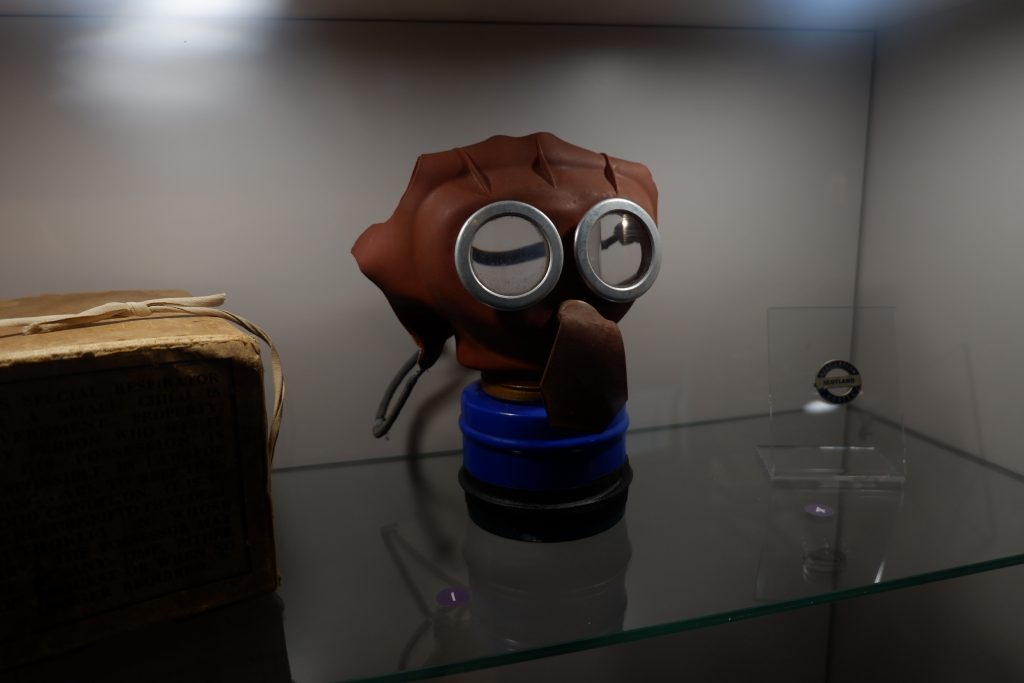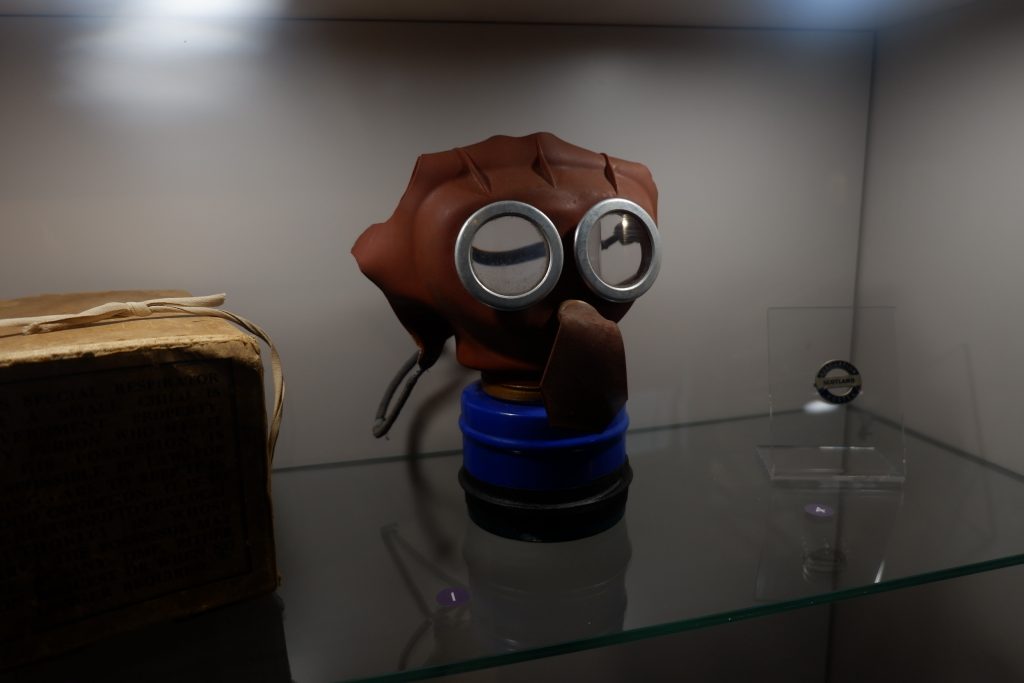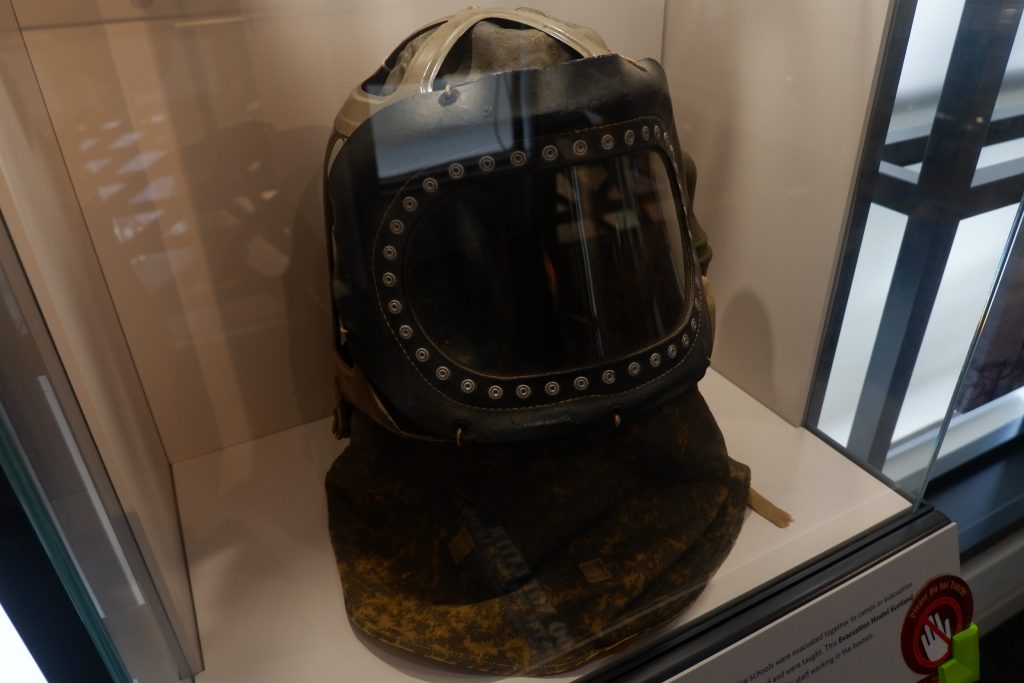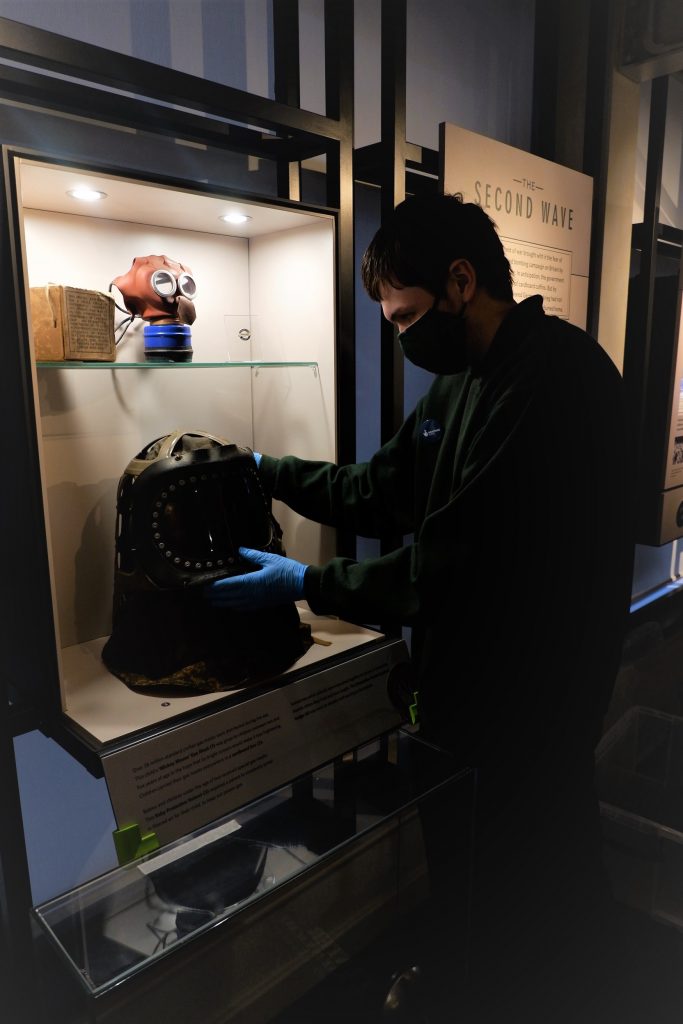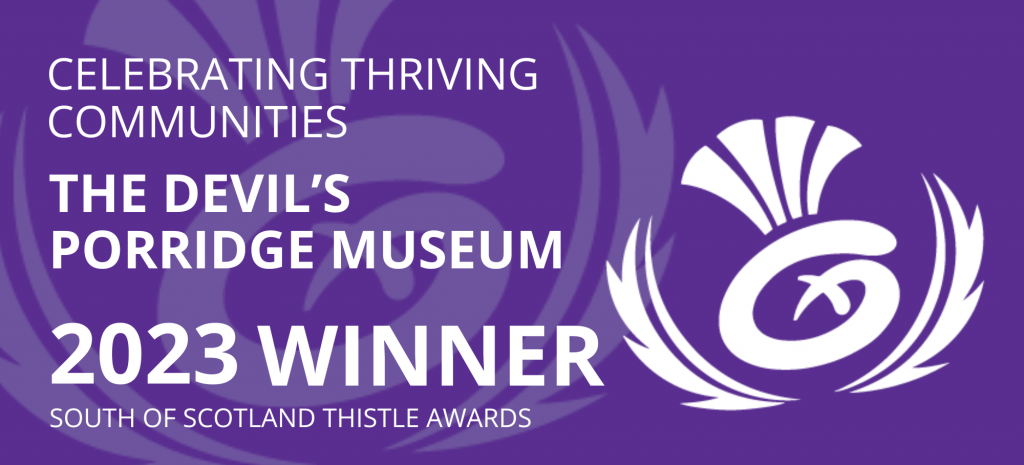The Devils Porridge Museum collects and displays objects relating to World War One and Two and objects relating to the military and industrial heritage of our area after 1945 (including Chapelcross Nuclear, Scotland’s first Nuclear Power Station). This inevitably means that we have a large collection of gas masks in our collection. These objects are precious social records of wartime experiences but they also contain asbestos in the filter (it wasn’t known at the time the damage that asbestos dust can do to the respiratory system).
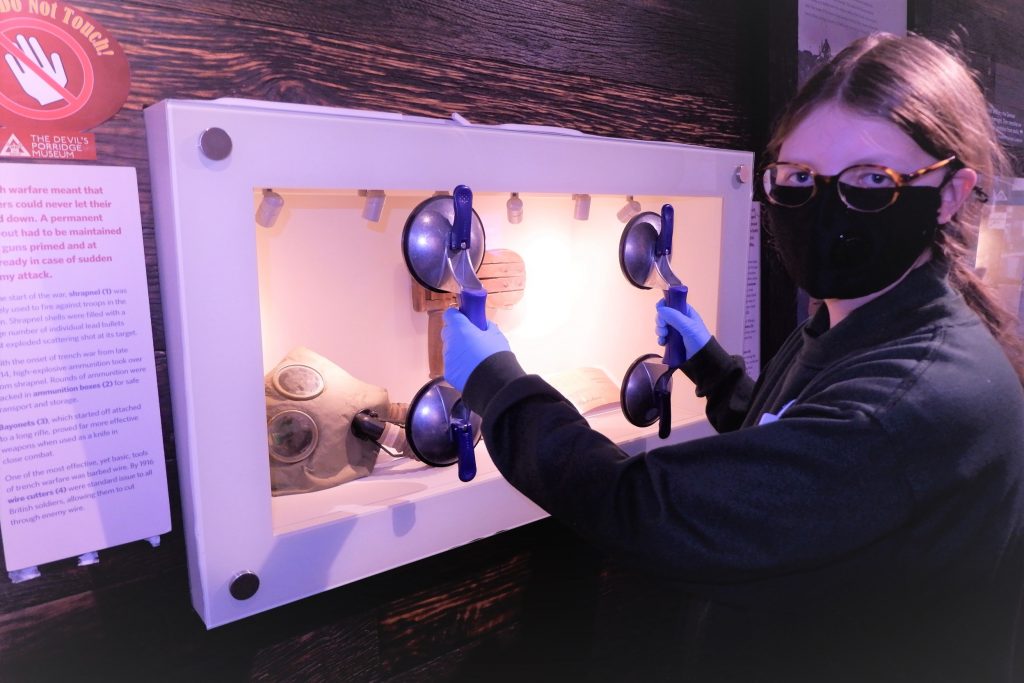
Desray removing a Gas Mask from display
We’re very pleased to have received funding from Museums Galleries Scotland to manage the asbestos in our gas mask collection. This has enabled us to hire a professional from Kadec Asbestos Management to work with the objects and make them safe. Bill, from Kadec, has been at the Museum for the past two days and yesterday he spoke with two of our young employees, Desray and Alastair, about his work. Desray and Alastair are completing their SVQ Level 3 in Museums and Galleries Practice. Some of the units focus on collection care and this was a good opportunity for them to find out about the work of external consultants within the Museums sector.
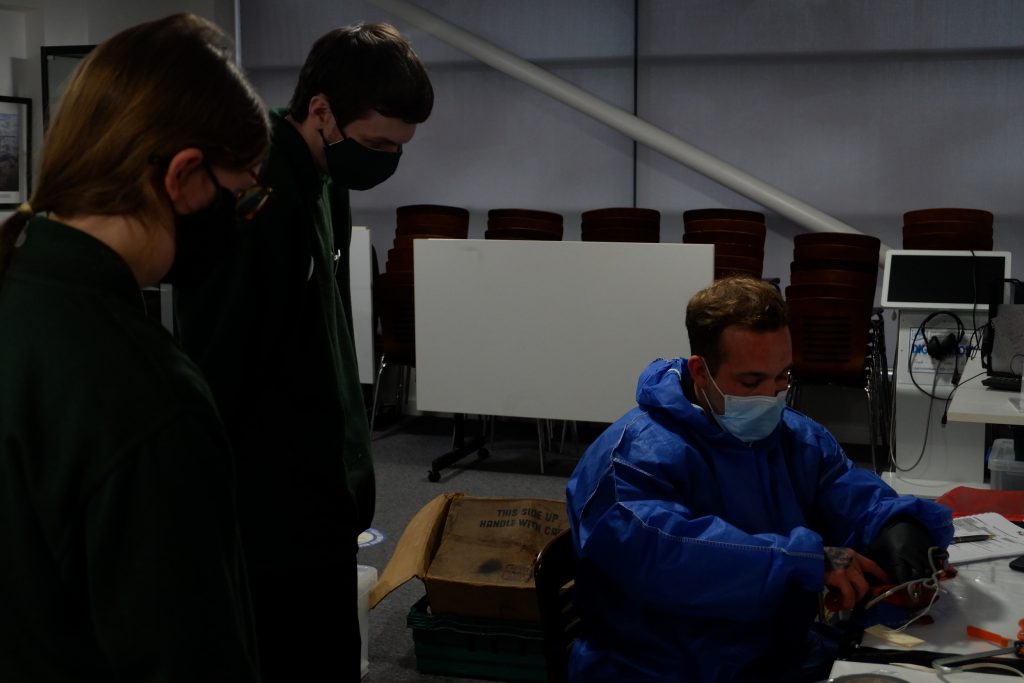
Desray and Alastair speaking with Bill from Kadec Asbestos Management about his work.
The Museum offers opportunities for training and volunteering to all members of our community, if you’d like to find out more about our work, email: info@devilsporridge.org.uk or phone: 01461 700021.
